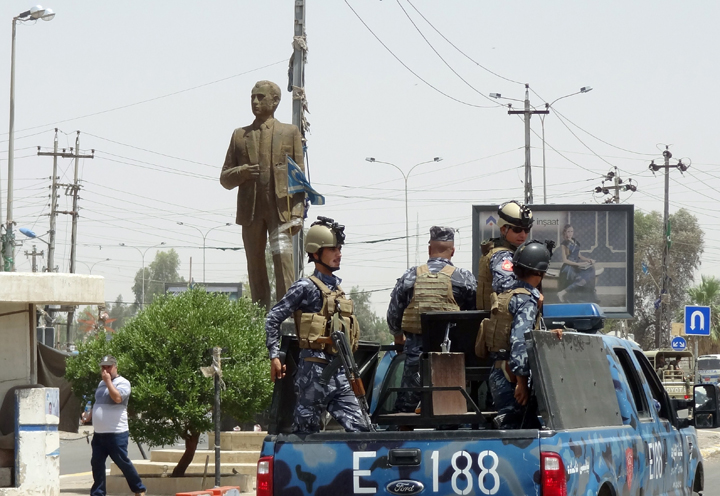TORONTO – The Canadian dollar fell Friday, as the conflict in Iraq intensified and triggered fears that oil supplies from the Middle Eastern country may be at risk.

The loonie faded 0.10 of a cent to 92.02 cents US.
In Iraq, Islamic militants vowed to march on to Baghdad after pushing deep into parts of the country’s Sunni heartland previously controlled by U.S. forces.
The al-Qaida-inspired group, Islamic State of Iraq and the Levant, captured two key cities earlier this week and has now taken over two towns in an ethnically mixed province northeast of the capital.
U.S. officials have ruled out putting troops back on the ground, despite this being the biggest threat to the country’s stability since the Americans withdrew at the end of 2011.
On Friday, a representative for Iraq’s top Shiite cleric urged citizens to pick up arms and defend their country from the militants.
One of the two cities that were invaded, Mosul, lies in an area that is a major gateway for Iraqi oil. While the loss of the city has no immediate effect on oil exports, now at over three million barrels a day, it adds to concerns over security and the country’s plans to expand oil production.
The upheaval comes after the Organization for the Petroleum Exporting Countries (OPEC) met in Vienna this week and said it will maintain its current output of 30 million barrels a day. Iraq is OPEC’s No. 2 oil producer.
The July crude contract advanced 13 cents to US$106.66 a barrel.
“Today, the focus is on oil markets, where prices have risen on the back of rising supply risk from developments in Iraq,” wrote Camilla Sutton, chief FX strategist at Scotiabank.
“However, the impact of high oil prices on CAD are typically more powerful when they are high on the back of demand versus supply issues,” Sutton said in a research note.
Meanwhile, investors were still digesting the latest announcement from the Bank of Canada.
In a semi-annual financial review Thursday Governor Stephen Poloz signalled that the central bank would likely keep interest rates on hold for the near-future. Some analysts expect that date to be closer to the second half of 2015.
“(Poloz) has a fine balancing act between recognizing the shift in the fundamentals but highlighting that the underlying strength of the economy is still vulnerable and unbalanced,” said Sutton. “For CAD (Canadian dollar), the core message is a zone of stability, as the fundamentals have improved but interest rates are likely to remain on hold for an extended period of time.”
In other commodities, August gold bullion added 20 cents to US$1,274.20 an ounce, while July copper jumped two cents to US$3.04 a pound.

Comments